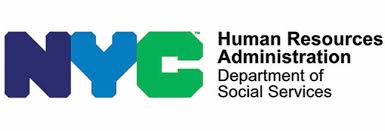Temporary Assistance (TA) is temporary help for needy men, women and children. If you are unable to work, can’t find a job, or your job does not pay enough, TA may be able to help you pay for your expenses. Learn about Temporary Assistance from the topics below: What are the two major Temporary Assistance programs? Is there a limit on how long I can get TANF-Funded Temporary Assistance? What is an Emergency? How Do I Apply for Temporary Assistance? How do I file a discrimination complaint about a temporary assistance program? Temporary Assistance Source Book What are the two major Temporary Assistance programs? Family Assistance (FA) Family Assistance (FA) provides cash assistance to eligible needy families that include a minor child living with a parent (including families where both parents are in the household) or a caretaker relative. FA operates under federal Temporary Assistance for Needy Families (TANF) guidelines. Under FA, eligible adults are limited to receiving benefits for a total of 60 months in their lifetime, including months of TANF-funded assistance granted in other states. Once this limit is reached, that adult and all members of his or her FA household are ineligible to receive any more FA benefits. The months need not be consecutive, but rather each individual month in which TANF-funded benefits are received is included in the lifetime count. Parents and other adult relatives receiving FA, and who are determined to be able to work must comply with federal work requirements to receive FA benefits. As a further condition of FA eligibility, each person who applies for or is receiving FA, is required to cooperate with state and local department of social services in efforts to locate any absent parent and obtain support payments and other payments or property. Non-cooperation without good cause could result in lower FA benefits. Safety Net Assistance (SNA) If you are not eligible for other assistance programs, you may be eligible for SNA. SNA is for: Single adults Childless couples Children living apart from any adult relative Families of persons found to be abusing drugs or alcohol Families of persons refusing drug/alcohol screening, assessment or treatment Persons who have exceeded the 60-month limit on assistance Aliens who are eligible for temporary assistance, but who are not eligible for federal reimbursement Recipients of SNA, who are determined to be able to work must also comply with work requirements to receive SNA benefits. Generally, you can receive cash SNA for a maximum of two years in a lifetime. After that, if you are eligible for SNA, it is provided in non-cash form, such as a two party check or a voucher. In addition, non-cash SNA is provided for: Families of persons found to be abusing drugs or alcohol Families of persons refusing drug/alcohol screening, assessment or treatment Families with an adult who has exceeded the 60 month lifetime time limit Is there a limit on how long I can get TANF-Funded Temporary Assistance? There is a 60-month limit on the receipt of Family Assistance benefits funded under the federal TANF program (the former Aid to Families with Dependent Children (ADC) program), some Safety Net Assistance (SNA) or the Child Assistance Program (CAP). Additionally, a payment for regular maintenance needs under the Emergency Assistance to Families with Children (EAF) for the month of December 1996, or any month thereafter, are included in the 60-month count. Participants in CAP are also restricted to the 60-month lifetime limit. Additionally, cash Temporary Assistance in New York State is limited to a cumulative period of 60 months for any adult. No cash assistance (FA or SNA) benefit is granted to a family that contains an adult who has received a combined total of 60-month benefits under FA or cash SNA. What is an Emergency? An emergency is an urgent need or situation that has to be taken care of right away. Some examples of an emergency are: You are homeless You have little or no food Your landlord has told you that you must move or has given you eviction papers You do not have fuel for heating in the cold weather period Your utilities are shut-off or are about to be shut-off, or you have a 72-hour disconnect notice You or someone in your family has been physically harmed , or threatened with violence by a partner, ex-partner or other household member
We uncover hard to find non profit and governmental assistance programs.

